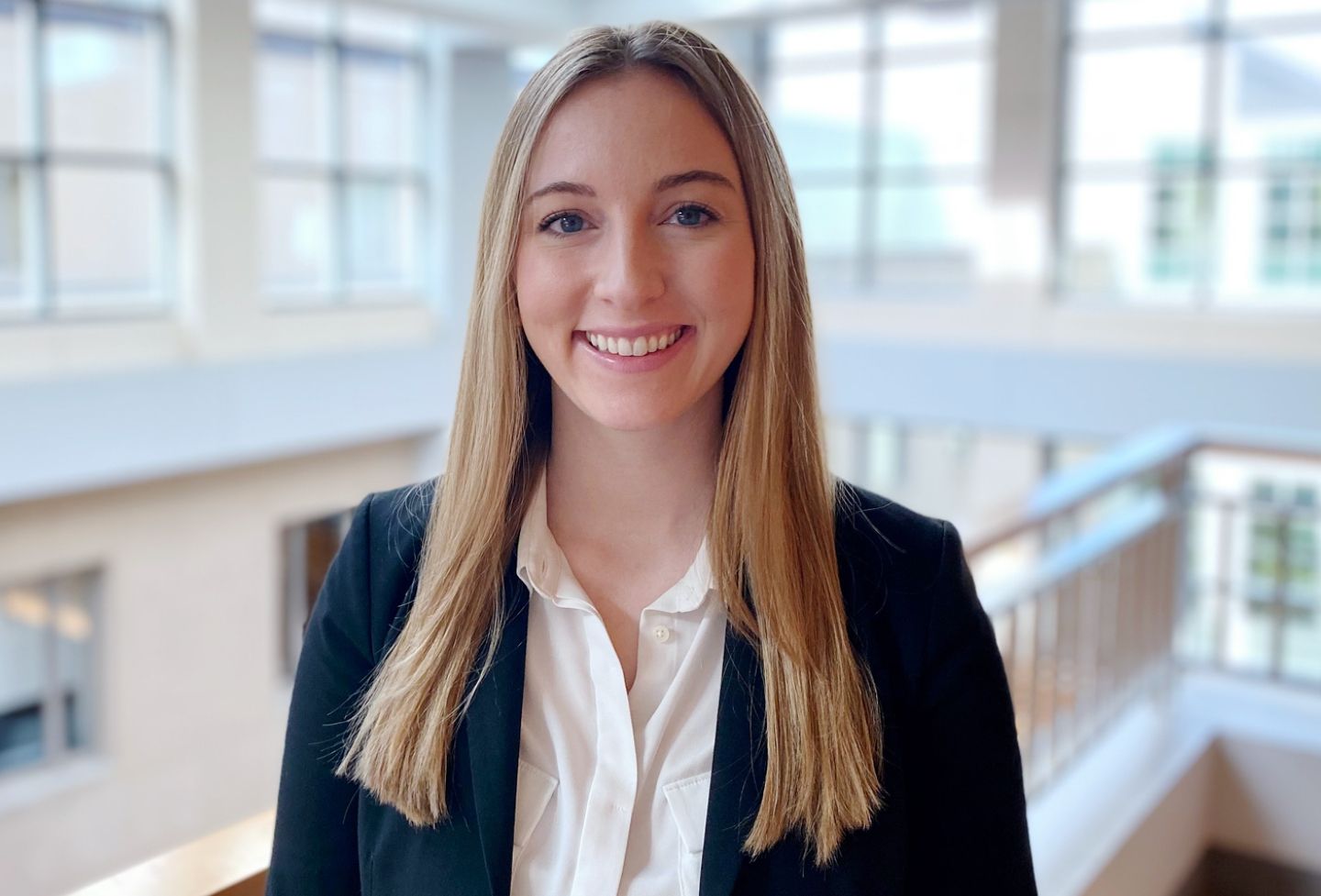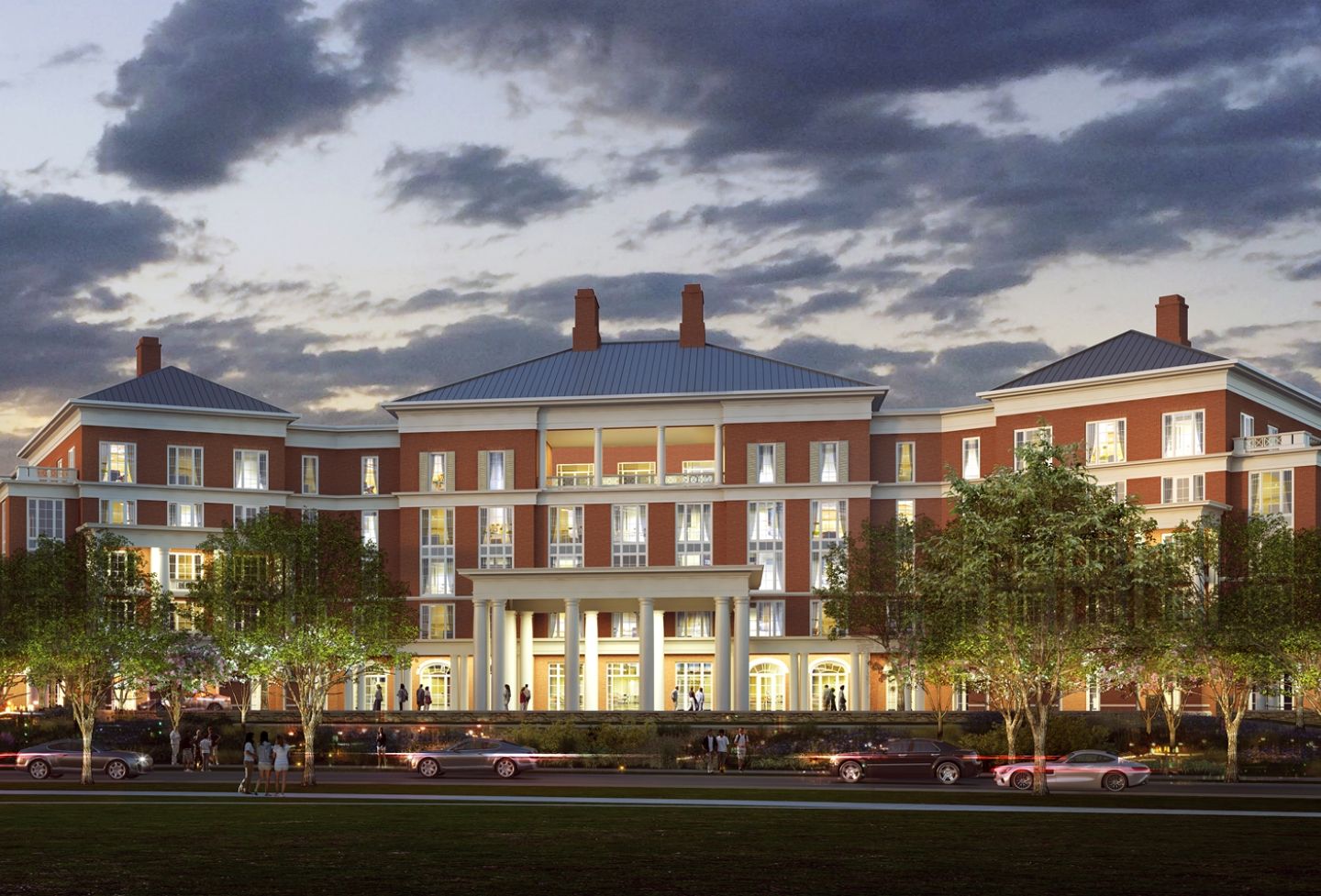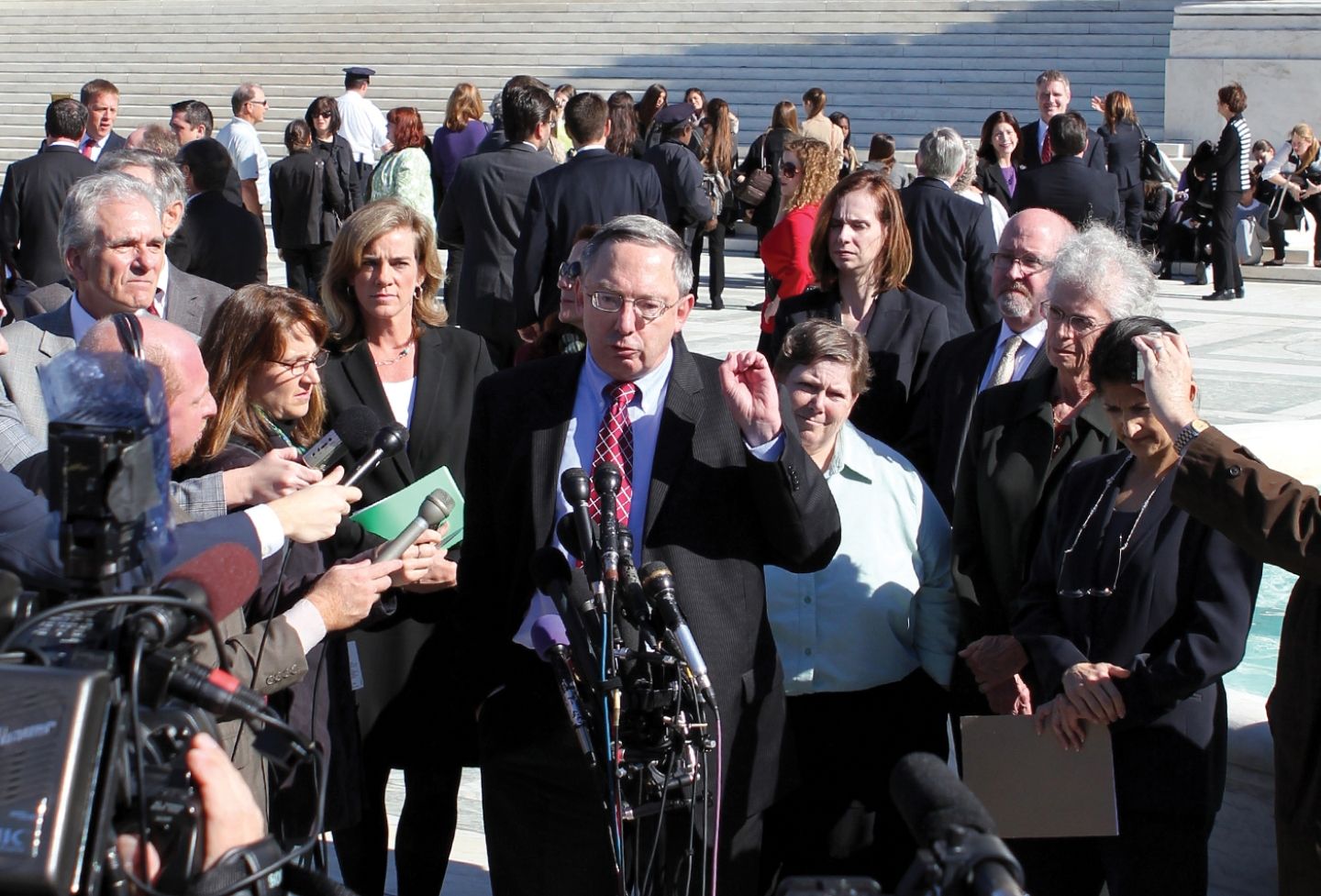Maybe it was the graduation speech by Attorney General Eric Holder. Or maybe it was the pull to work in public service spurred by a clinic, or an inspirational professor. Whatever the cause, the Class of 2011 has an unusually high number of assistant U.S. attorneys, with at least 10 serving currently.
Alex Blanchard ’11 sent a note in August to let UVA Lawyer know that he tallied four UVA-bred AUSAs from his class in his own Alexandria, Virginia, office, including himself and his colleague Jamar Walker ’11, who left their ranks seven months later to serve as a federal District Court judge. Veronica Dragalin ’11 also recently turned in her badge in California to serve in a key role prosecuting corruption in her family’s homeland, Moldova. Even with those alums launching new careers, the number of classmates working as AUSAs was high, with four more alumni working in Virginia, two in Miami and one in Pennsylvania, Law School Foundation records revealed. Many more serve in the Justice Department in other kinds of roles.
Holder, who delivered the Law School’s commencement address on May 22, 2011, signed the certificate appointing Christopher Browne ’11 an AUSA in 2013.
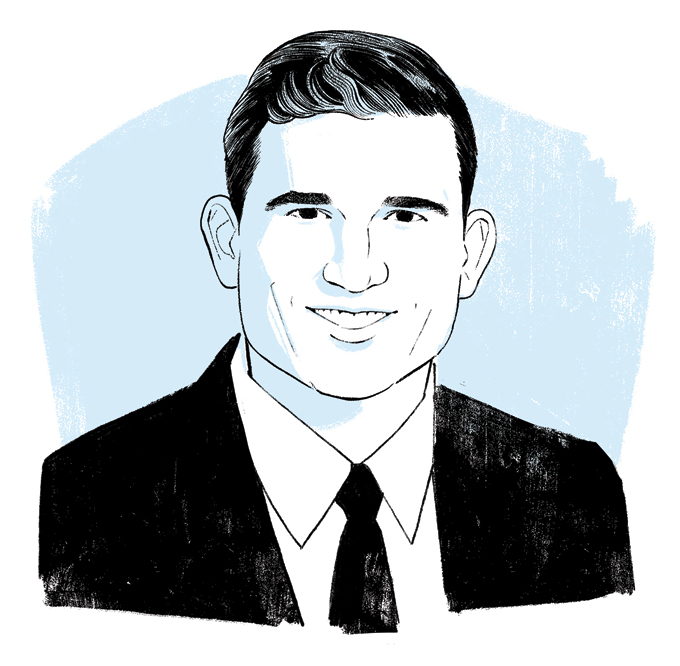
“Each time I look at that piece of paper on my wall, it reminds me that my dream career started, in a real way, on North Grounds in Charlottesville,” Browne said.
Browne is now deputy chief in the Major Crimes Section in Miami, where he supervises other AUSAs prosecuting human smuggling, narcotics, fraud, child exploitation and firearms offenses. He has also worked on economic cases and cybercrimes.
Browne was inspired to become a federal prosecutor after his first post-college job working as a news assistant at CNN in New York, where he covered financial crimes.
“Watching great lawyers advocate for their clients and on behalf of victims made me want to be a part of it,” he said. Today, “serving the same community that welcomed my Cuban immigrant mother and her family in 1960” is one of the best parts of his job.
Browne also credited Professor Rachel Harmon, a former federal prosecutor herself, who taught him criminal law and criminal procedure.
“I was very lucky [to have her as a teacher]. She was one of the first people I thanked when I got this job,” Browne said.
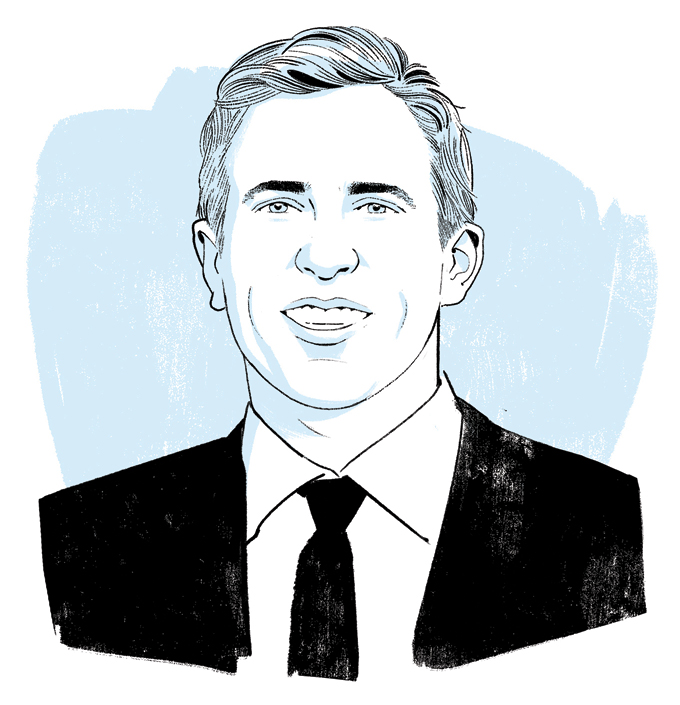
Fellow Miami office AUSA Christopher Cheek ’11 said he fondly remembers his Child Advocacy Clinic experience with Professor Andrew Block and a seminar with then-Professor Jim Ryan ’92. Today he works in affirmative civil enforcement with an emphasis on combating health care fraud, and enjoys the “significant independence” of his job, as well as working with co-workers who similarly value working in public service.
“I feel lucky to have work that serves a greater mission and broader community,” he said.
A District Court clerkship played a pivotal role on Cheek’s journey to becoming a prosecutor in the same district.
“Clerking with a district judge gave me insight into federal practice in that specific district, which I imagine would have been difficult to come by as quickly in other jobs as a newer attorney,” he said. “That insight was valuable for the job I ended up in and probably made me a more competitive applicant.”
Ravi Romel Sharma also clerked for a U.S. District Court, though in the Eastern District of Virginia. He spent seven years after that in law firms before making the leap in 2020 to become an assistant U.S. attorney in the Harrisburg, Pennsylvania, office. Sharma was inspired during his college days by a professor who had been both a federal prosecutor and the father of a UVA Law graduate who became an AUSA.
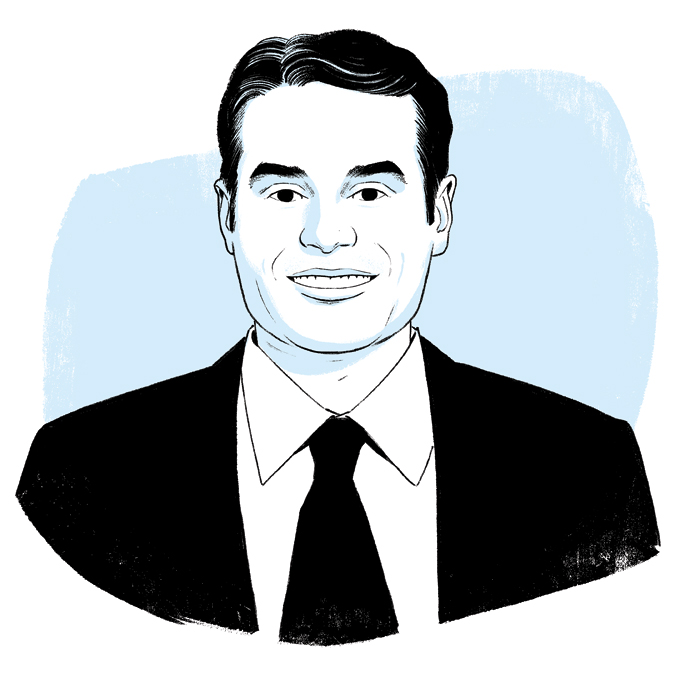
The professor “always said it was the best job you could have as a lawyer,” Sharma said. “It turns out he was right.”
During law school, Harmon’s criminal procedure course made the material “come alive.” When he got the job in Harrisburg, he was excited to share the news with Harmon, who had long been supportive of his prosecutorial aspirations.
Today, Sharma handles a broad range of white-collar fraud matters, including cases relating to health care, government contracts, counterfeit art, elder fraud and international money laundering.
“Right now, fraud related to pandemic-assistance programs is a main area of focus for us and our partner agencies,” he said.
He compared fraud cases to a “complex puzzle.”
“It is extremely satisfying to figure out what a set of defendants did and how they did it, and to hold them accountable for it,” he said. “Most ordinary members of the community go to work every day and work hard to support themselves and their families. It’s rewarding to be able to demonstrate to them that there is accountability for those who try to take advantage of others and defraud government programs.”
One of Blanchard’s 2011 colleagues in the Eastern District of Virginia, April Russo, said she has long been committed to helping crime victims.
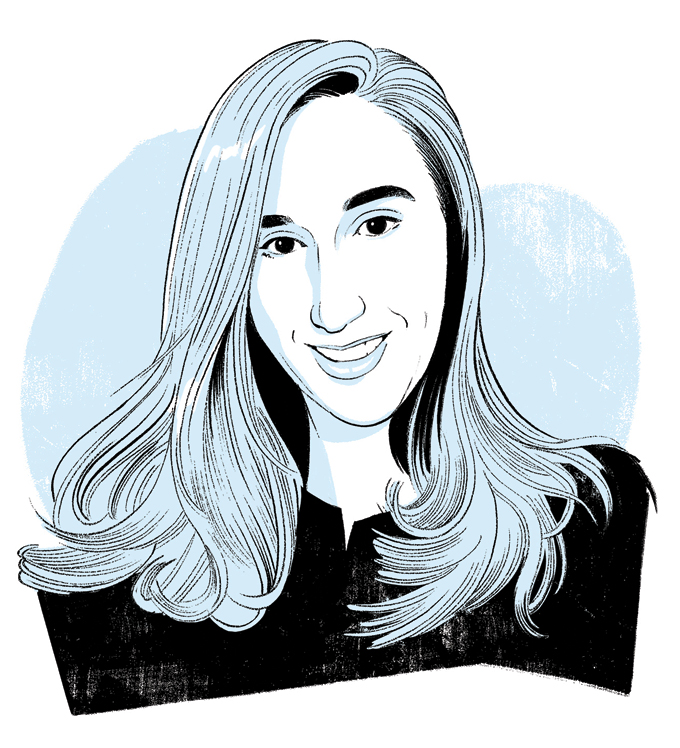
“Over the years, I have specialized in prosecuting child exploitation and human trafficking crimes and found that my original passion for working with victims has only grown,” said Russo, who is now the deputy chief of the Special Assistant U.S. Attorney Unit. She supervises between 15 and 20 “special AUSAs,” who are attorneys from other government agencies assigned via temporary detail to the Eastern District of Virginia, as well as AUSAs who are new to the district.
“It is so rewarding to be a part of mentoring new attorneys and watching the progress they make from the time they come into our unit to when they leave,” she said.
In 2021, Russo, then serving with the Child Exploitation and Human Trafficking Unit in the U.S. Attorney’s Office for the District of Columbia, received the Shaping Justice Rising Star award from the Law School.
Russo said her UVA Law professors taught her to “put integrity first, and they led by example in doing so.”
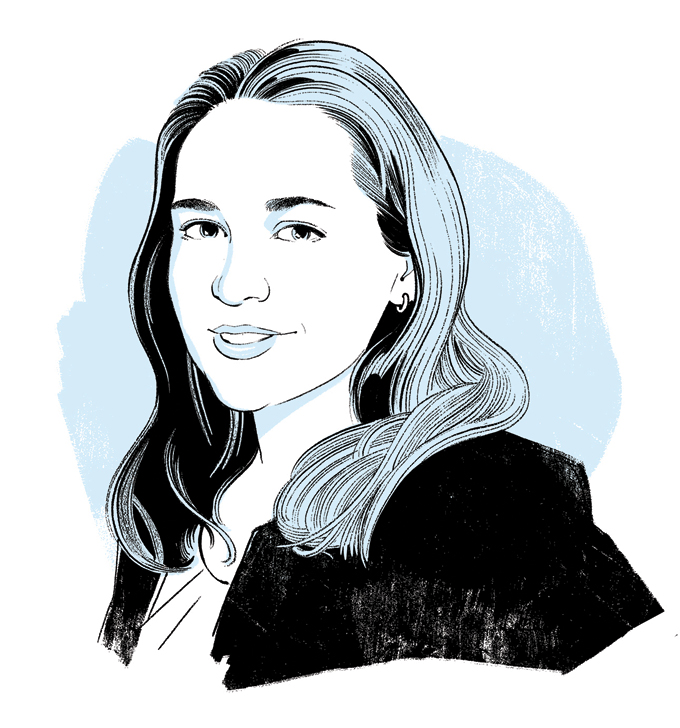
Another Alexandria colleague, Danya Atiyeh, got a shoutout from Attorney General Holder on their 2011 graduation day because she was coming to work for the Justice Department as a trial attorney in the National Security Division immediately after law school.
Two summer internships with the DOJ as an undergraduate, including with the U.S. Attorney’s Office in Washington, D.C., in their Victim/Witness Assistance Unit, locked in her interest in the AUSA role. In that internship, Atiyeh worked on a project arranging travel for a group of victims of a large-scale financial fraud.
“These folks were from all over the country, many of them had lost their life savings to the scammers, and they were coming to give victim impact testimony at sentencing,” she said. “It was a reminder of how devastating crime can be to members of the public, and the ways that prosecutors can help bring some measure of justice to people who need help.”
Looking back at her law school years, Atiyeh’s 1L criminal law course with Professor Anne Coughlin holds a “special place” in her heart, not only for the professor’s engaging lectures, but because she met and began dating her husband, Wells Harrell ’11, through the class. (Several AUSAs cited both Coughlin and Harmon.)
For her 2L year, Atiyeh deliberately picked a Trial Advocacy class taught by an AUSA, Jean Hudson from the Western District’s Charlottesville office. (Now she occasionally crosses paths with Hudson when their cases overlap.) Atiyeh also took the Prosecution Clinic, which “throws you straight into hands-on courtroom practice in a way that few clinics anywhere do.”
As chief of the National Security and International Crimes Unit in the Eastern District, Atiyeh supervises and prosecutes cases involving international and domestic terrorism, espionage and disclosure of classified information, and export control cases, such as violations of international arms trafficking laws and sanctions.
Her unit handles some of the most high-profile national security cases in the country, including the prosecutions of Alexanda Kotey and El Shafee Elsheikh, the two surviving members of the ISIS “Beatles,” the terrorist cell of British-born foreign fighters in charge of the international hostage-taking operation for ISIS. The pair were responsible for beheading three American citizens — journalists James Foley and Steven Sotloff, and aid worker Peter Kassig, whose deaths they filmed and broadcast — and the death of American aid worker Kayla Mueller.
“These are complex, difficult federal trials, and every aspect of the trial rests on you,” Atiyeh said. “You are the sole person telling the entire story of the case to the jury, and you’re the one who has to decide exactly how to tell it. It’s a huge responsibility, but also an incredible privilege — there’s just nothing else like it.”
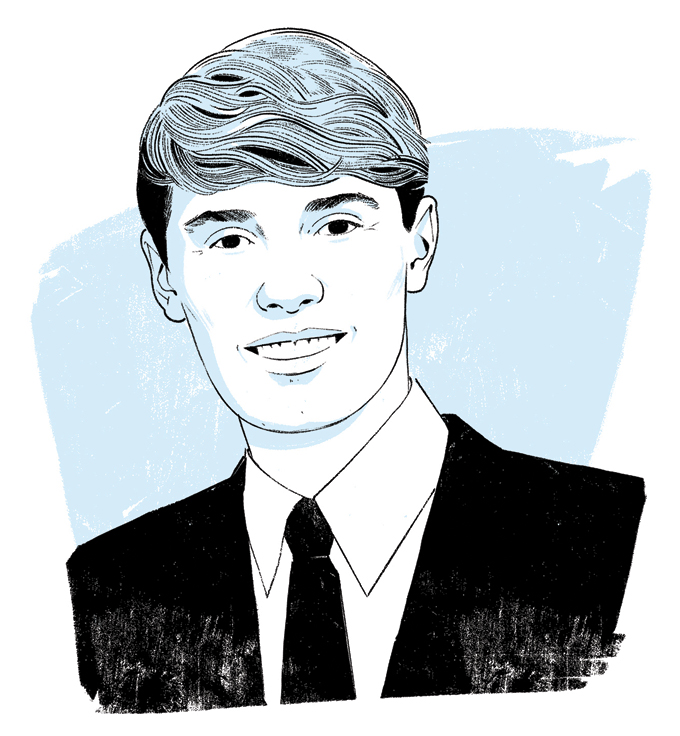
Blanchard, who now works as the chief of the Major Crimes Unit in Alexandria, supervises attorneys who handle the investigation and prosecution of complex violent crime across Northern Virginia. Blanchard recently prosecuted an MS-13 double-murder trial that made headlines, but beyond gang-related kidnappings and murders, his unit also handles firearms trafficking, armed robberies, sex trafficking, international human rights violations, forced labor trafficking, threats against government officials, criminal civil rights violations, and sexual assaults committed at military and intelligence installations where the federal government has jurisdiction.
A Double Hoo, Blanchard realized in law school that he wanted to become a prosecutor, but he also knew there would be “a lot of competition” for the appointment. He took on a District Court clerkship with Judge Norman K. Moon ’62 in the Western District of Virginia and an appellate clerkship at the Fourth Circuit, and worked as a law firm associate at Jones Day. Today, in addition to being a prosecutor, he’s an adjunct professor at Georgetown University Law Center.
He characterizes his prosecutor role as “challenging and dynamic.”
“No one day is just like the other. There are always different problems arising and presenting themselves, whether from a case investigation standpoint or trial standpoint or supervising standpoint,” he said. “For me, it’s just important to have a sense that I am working toward something larger than myself, and it just feels great to think that you’re helping keep people safe by getting bad guys off the street.”
Blanchard praised his experience in the Law School’s Prosecution Clinic as “a tremendous opportunity” to handle cases and do bench and jury trials before even graduating from law school.
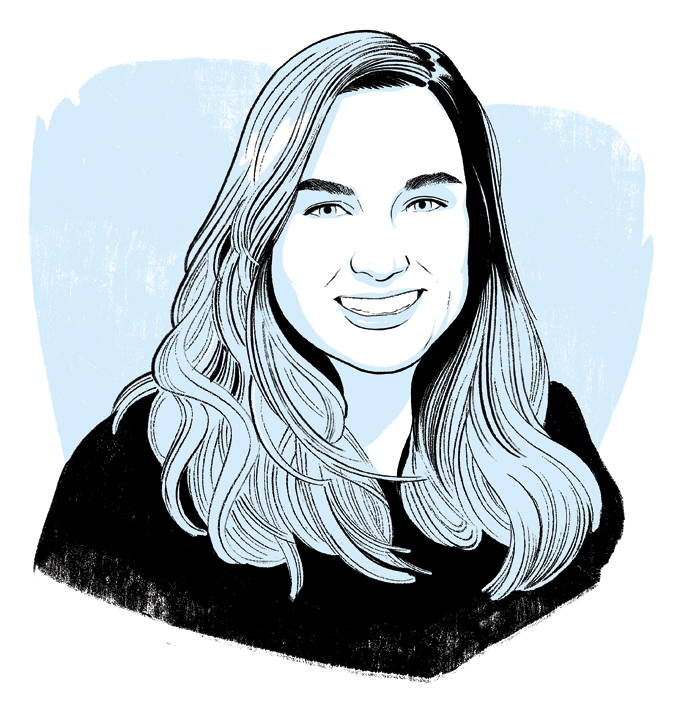
Having wanted to be a prosecutor since she was 12, Melanie Smith served as an assistant commonwealth’s attorney in Virginia Beach before making the leap to AUSA. She was attracted to the role because it allowed her to be more proactive, working side by side with federal agents to help cases take shape.
Her first federal role was in the DOJ’s Tax Division, then she moved to Dallas, where she prosecuted cases involving drug cartel money launders, kidnappings and bank robberies.
“But I really developed a true passion for prosecuting sex trafficking cases,” she said. “Being able to work with victims and see real, concrete change as a result of my efforts was incredibly rewarding. I love that when I go to bed at night, I know that I have worked to make the world a better place.”
One of the trafficking victims she worked with is now an Ivy League college student, while another is on her way to becoming a victims’ advocate.
“The agents and I were able to not only prevent violent traffickers from continuing to abuse and damage new victims, but we were also able to provide support and services to help these women improve their lives,” Smith said. “Seeing the good that can come out of such terrible situations makes the tough parts of the job worth it.”
Now serving in the Charlottesville U.S. Attorney’s Office, Smith works on “a little bit of everything,” from sex trafficking to white-collar crimes.
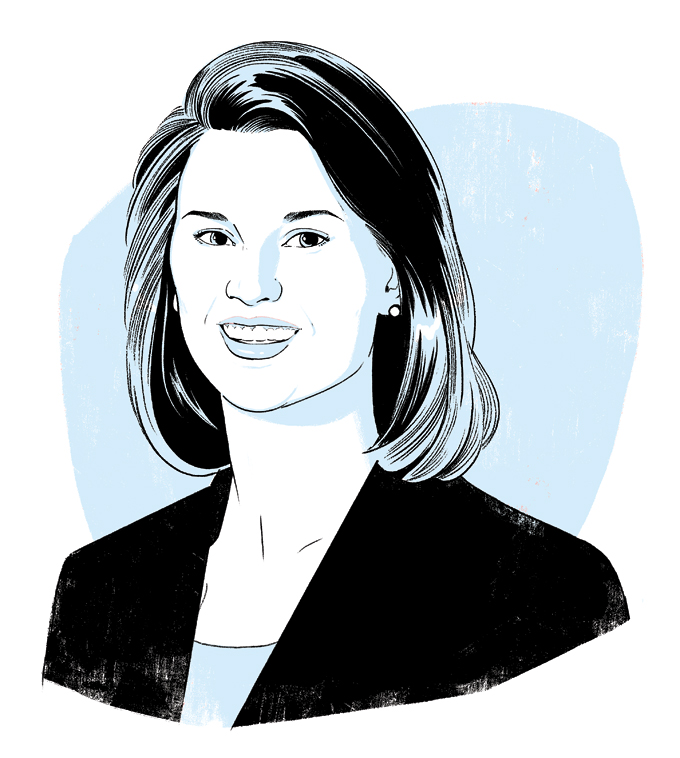
“The variety is great. I am constantly learning new things,” she said.
For Double Hoo Lena Busscher, taking an AUSA role in the Abingdon Division in the Western District of Virginia in 2019 came with the advantage of moving near her hometown in Southwest Virginia. She had interned for a federal magistrate judge in the district before law school, then interned and clerked for the federal district court judge in the same courthouse.
“Those experiences and Anne Coughlin’s criminal law classes at UVA sparked my excitement about being a prosecutor,” she said.
Busscher and other AUSAs in the small Abingdon office handle a variety of cases, from firearms offenses to white-collar crimes. She has focused on prosecuting out-of-state drug traffickers linked to fentanyl overdoses in the area, and serves as the Project Safe Childhood co-coordinator for the district, and in that role has prosecuted several child exploitation cases.
“The work is extremely rewarding — especially when you get to serve in your hometown,” she said. “I love that every day is different, and that I get to play a role in making our community safer. I also enjoy the team aspect of working with agents in the investigatory stage of cases.”
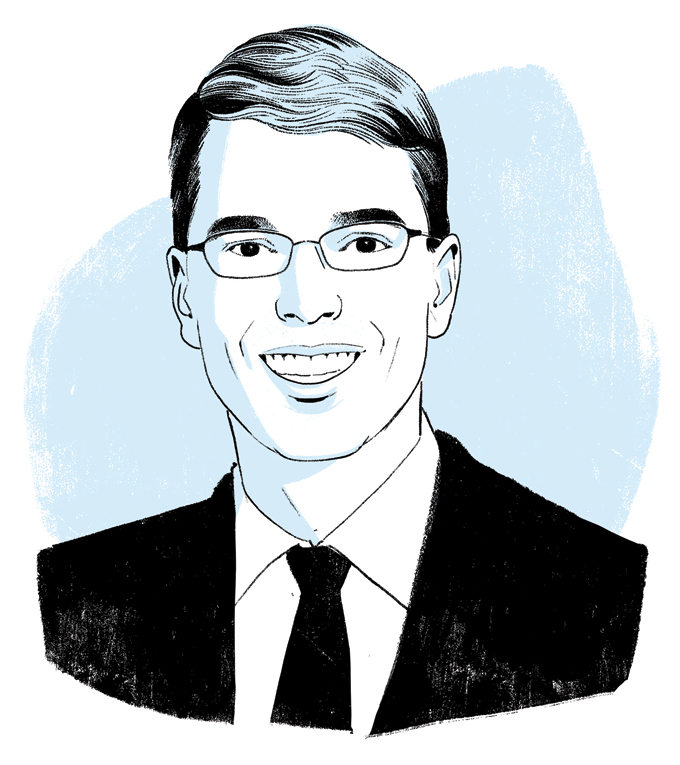
Rebecca Gantt, who works in the Eastern District of Virginia’s Norfolk office with 2011 classmate Sean Jansen, took a winding path to her current role working on criminal fraud, child exploitation, human trafficking, civil rights and national security cases. After clerking for the 1st U.S. Circuit Court of Appeals, the U.S. Supreme Court and the U.S. District Court for the Eastern District of Virginia — in that order — she worked for more than four years as an associate in McGuireWoods’ Norfolk office.
“I was lucky to be exposed to many different areas of law and learn from many excellent attorneys,” she said. After she moved to government investigations and white-collar litigation, “I really began to appreciate the truth-seeking mission of criminal law.”
At the firm, she helped represent the family of Otto Warmbier in a lawsuit against North Korea. Warmbier, a UVA student, returned to the United States in a coma after a lengthy detention in North Korea, and died shortly afterward. The family was awarded $501 million in damages, but Pyongyang ignored the order. Later, the family was awarded $240,000 in assets to be seized from a North Korean bank.
“That case showed me the great reward that can come from seeking some measure of justice for victims,” she said. “Having served in the U.S. Navy prior to law school, I was also ready to return to public service and knew how meaningful such mission-focused work could be.”
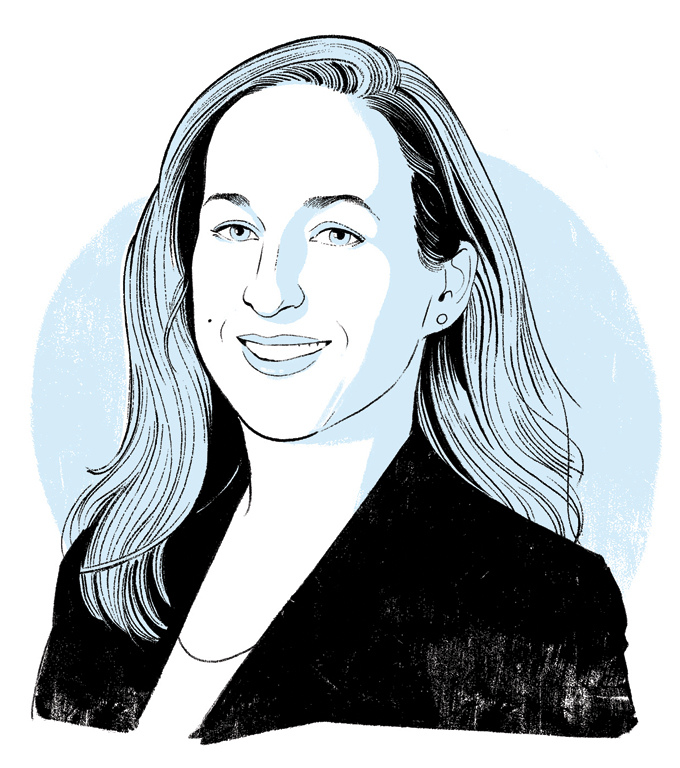
Jansen, Gantt’s Norfolk office colleague, represents the U.S. and its agencies in civil litigation filed in the Eastern District.
His work varies from Federal Tort Claims Act cases, such as medical malpractice claims, to employment discrimination matters, Bivens cases involving constitutional claims against individual federal employees, immigration matters, admiralty issues and land cases in which the U.S. has an interest in property being sold.
“One day you might be representing a branch of the military in a multimillion-dollar contract dispute, the next day you might be dealing with an admiralty dispute, and the next you might be defending [the U.S. Postal Service] in a minor fender bender,” he said. “Because we represent every federal agency in court, the work never gets old and the types of cases are always new and fresh.”
Jansen said he appreciated the autonomy and responsibility of seeing a case through from start to finish.
“What attracted me [to this role] was the opportunity to handle my own cases and represent my country in court,” he said. “There’s something very special about being able to stand up in court and say you represent the United States.”
TIPS FROM THE AUSAs
The AUSAs who graduated from the Class of 2011 offered tips for students considering a similar career.
“Internships are one of the best ways to get your foot in the door in government, and the best way to learn about the day-to-day work of a prosecutor’s office. Clinical work is the best way to actually get experience standing up in court. Both of those things are invaluable, as professional learning experiences and to get your resume picked off a pile!”
—Danya Atiyeh
“You need to try to live relatively frugally in the time where you are otherwise making good money [working for a law firm], so that when you do leave and you get a big pay cut, you can withstand it and still be able to have a family and buy a house one day.”
—Alex Blanchard
“Develop your foreign language skills and represent indigent defendants, if possible. There is a human story inside every case file. And understanding the ‘why’ behind the crime is often just as important as the ‘how.’”
—Christopher Browne
“Take classes that force you to get on your feet and practice public speaking skills. Along the same lines, take advantage of pro bono or court-appointed opportunities that allow you to gain experience representing clients in court and trying cases if possible.”
—Lena Busscher
“[The Southern District of Florida] is a very large district where AUSA opportunities come up relatively more often. If a student has a clear idea about the job they'd like, being willing to cast a bigger net and move to a district for the job is a strategy that worked well for friends.”
—Christopher Cheek
“Writing skills are just as important for a federal prosecutor as courtroom skills, so seeking feedback on your written work product whenever you can is valuable. For students (like me) who did not know in law school where they wanted to end up, I would encourage them to keep an open mind, build their general writing and advocacy skills, and try as many different areas as law as possible. I found both my federal clerkships and being an associate in Big Law extremely helpful in exposing me to many different areas of the law and helping me figure out what was a good fit for me. I would also encourage all students to learn about the Department of Justice—there are a lot of different components other than being a federal prosecutor that could be a good fit for most anyone interested in government service.”
—Rebecca Gantt
“There are any number of paths to becoming an AUSA, but working for a Big Law firm for at least a few years is one of the most common. If a desired [AUSA] position opens up, take a shot even if it doesn’t seem like the perfect time. For certain types of positions and for certain offices, it can be years before a new position will open up. By that same token, don’t be discouraged if you don’t get hired or interviewed when you first apply. It’s not uncommon for a person to apply multiple times or even be interviewed multiple times before being hired.”
—Sean Jansen
“Seek out opportunities to intern with a prosecutor’s office and talk to different prosecutors about their experiences. Always operate with integrity. Think about the great responsibility being a prosecutor entails, and pursue the right and just result in any given case.”
—April Russo
“If you want to be a prosecutor, go do it! Preferably, spend your 1L summer doing it. If you miss that window or cannot do it then, do the Prosecution Clinic or some other type of externship. And when it comes to getting permanent jobs as a prosecutor, apply frequently and don’t overlook any opportunity to get your foot in the door. That’s the hardest part. Once you are in, it is a choose-your-own-adventure.”
—Ravi Romel Sharma
“Stay the course! Try to get as much experience as you can and know that it is worth it in the end. It can be really tough to see your classmates lining up law firm jobs for the summer and postgraduation while you are still waiting for public service job postings to appear. While the public service timeline can feel quite delayed, the job opportunities will come and the ability to get experience right out of law school is invaluable.”
—Melanie Smith

